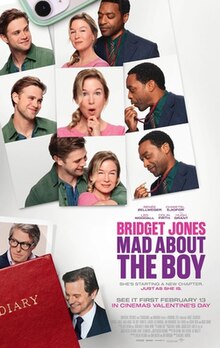Insight into Bridget Jones: Mad About the Boy Film

Introduction
The Bridget Jones series has been a beloved part of British pop culture since the release of its first film in 2001. With its relatable protagonist and humorous take on modern relationships, it’s little wonder that fans have eagerly anticipated each new chapter. The latest addition, “Bridget Jones: Mad About the Boy,” continues the journey of the iconic character created by Helen Fielding, exploring themes of love, loss, and self-discovery.
Overview of the Film
While the film adaptation of Bridget Jones: Mad About the Boy has garnered significant attention, it’s important to note that it departs from its literary counterpart in several ways. Initially published in 2013, the book delves into themes such as widowhood and the complications of becoming a single mother, showcasing Bridget as she navigates life after Mark Darcy’s untimely death.
In the film, directed by Sharon Maguire, Bridget steps back into the limelight as she faces the challenges of middle age. Played once again by Renée Zellweger, Bridget finds herself back in the dating scene, confronting modern dating obstacles, including online dating, societal expectations, and balancing her career and personal life.
A significant addition to this installment is the introduction of a new love interest for Bridget, played by Patrick Dempsey. Their chemistry adds a fresh dynamic to the storyline, shifting focus from Bridget’s past relationships to her potential new beginnings. The film combines comedic elements with genuine emotion, making it a compelling watch for both seasoned fans and newcomers.
Cultural Relevance
The Bridget Jones character resonates with many audiences, particularly women faced with societal pressures around relationships and family. “Mad About the Boy” touches on these themes, highlighting the importance of finding oneself amidst life’s unpredictability. It serves as a reminder that love can re-emerge in unexpected ways, no matter one’s age.
As the film appears in cinemas, it has ignited conversations on social media, with fans sharing their excitement and expectations. The anticipation indicates that the legacy of Bridget Jones is far from over, affirming its relevance in contemporary discussions about love and self-acceptance.
Conclusion
In conclusion, “Bridget Jones: Mad About the Boy” offers a fresh perspective on the beloved character while addressing the evolving nature of relationships in modern society. For those who have followed Bridget’s journey, this film serves not only as entertainment but also as an inspiration for navigating life’s complexities. As it continues to garner attention, the film might pave the way for future adaptations, ensuring that Bridget Jones remains a cultural touchstone for generations to come.









